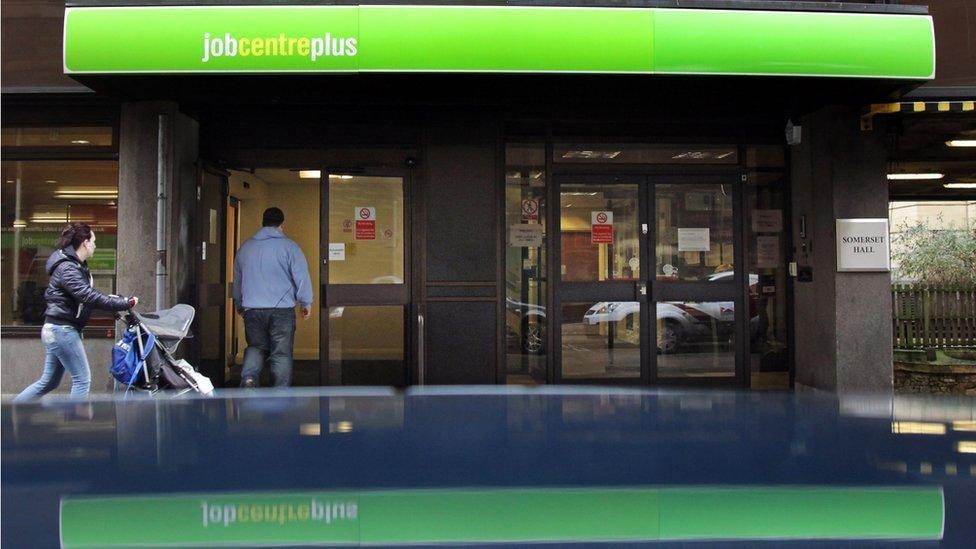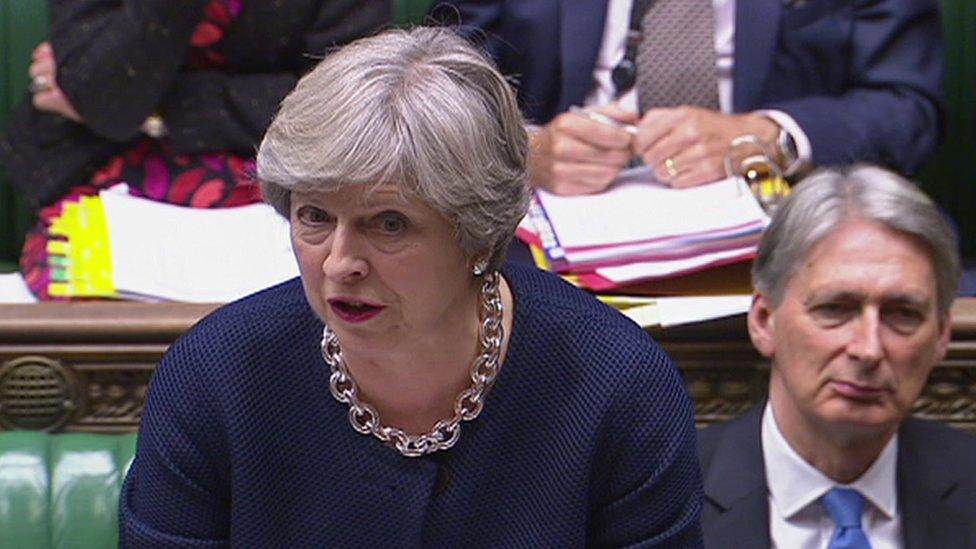Universal credit callers face five minutes on hold
- Published

There has been a sharp increase in the average amount of time people have been waiting for their calls to universal credit helplines to be answered.
New figures show callers to the helpline for the full service waited over five minutes in September - up from 1 minute 41 seconds in May 2017.
Labour said the long waiting times were evidence of a "terrible service".
The government has promised to make the calls free within weeks after criticism of the use of 0345 numbers.
Calls to 0345 numbers cost up to 45p a minute from mobiles and 12p a minute from landlines, although they are included if someone has an inclusive calls package.
The government does not make any money from the phone charges, as the money goes to the phone providers.
Universal credit rolls six working-age benefits into one single payment.
But the scheme has come under fire from charities, campaigners and politicians in recent months, as its nationwide roll-out speeds up.
Critics have accused it of pushing families and individuals into poverty as claimants have to wait six weeks for their first payment and overall payments decrease.
In some areas, the full service has already been rolled out to everyone, while in the rest of the country, a 'live' service is available to certain people like single jobseekers.
Data obtained by the BBC using the Freedom of Information Act reveals:
People trying to ring the helpline for the full universal credit service in September had to wait more than three times as long for their calls to be answered as they did in May, up from 1min 41sec to 5min 17sec
Claimants calling the 'live' line waited an average of 6min 32sec in September this year, up from 1min 44sec in August 2015
Only 84% of calls were answered at all in September, down from 92% in May, suggesting callers are increasingly putting the phone down before they are answered, as the waiting times increase
Frank Field MP, chairman of the House of Commons Work and Pensions Select Committee, said the new figures reveal "the full scale of the human wreckage that was created by this rip-off operation".
In October the government announced it would scrap call charges to Universal credit helplines within a month after a backlash from the opposition and some Conservative Party MPs.

But these figures shed new light on how much claimants may have been spending on phone calls up until now, which include urgent requests for advance payments, fixing problems with their claims and reporting changes to employment status.
The Department for Work and Pensions confirmed to the BBC that charges begin as soon as a customer joins the call queue, rather than when a member of staff answers.
Given that 'live' service customers were on the phone for an average of 7min 20sec once their call was answered in September, those waiting the average time for their calls to be answered could have been paying up to £7.63 for just one call, with £3.59 of this spent before the claimant had spoken to anyone.
A total of 743,435 calls were made to both helplines in September alone, 624,980 of which were answered. There were 694,410 calls in May this year and 638,011 were answered.
As the full service has been rolled out across the UK there has been a dramatic increase in the number of calls made, up from 195,783 in September 2015.
Debbie Abrahams MP, the shadow work and pensions secretary, said it was an "absolute disgrace" that people looking for support had to put up with "such terrible service".
A DWP spokesperson said: "99% of people who apply for universal credit do so online and our work coaches stand ready to support anyone who needs extra help with their claim.
"When people do call the helpline it is at a local rate which is free for many people as part of their call package and will be made completely free later this month."
- Published13 May 2024

- Published18 October 2017

- Published29 September 2017
